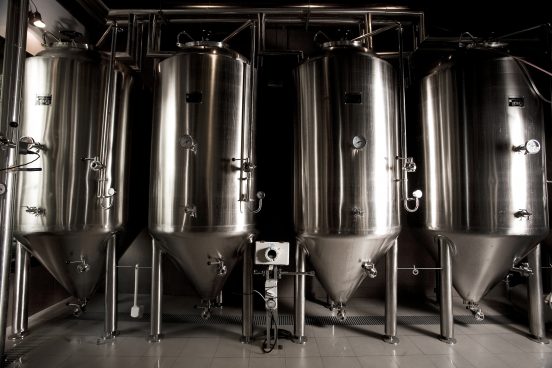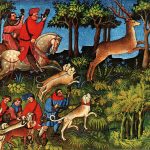CLST 211 Case Study: Darion’s Brewery
Mackenzie Lott
The following work sample was created for a UBC philosophy class between November and December of 2017. This case study demonstrates my ability to think critically about philosophical ideas. It shows my conflict resolution abilities and my writing ability as well. I am proud of this work not only for its content but also for what it represents to me. I worked in a brewery for a year and later went on to volunteer at an addiction recovery center; through this assignment I have been able to reconcile, at least to some degree, the seemingly contrasting perspectives of each institution. I am also proud to present a piece of writing which incorporates a philosophical theme and as a result of this exercise I am better able to weave these larger ideas into narratives.
Introduction
The Downtown Eastside (DTES) addiction crisis is a central issue in local politics. Associated problems of homelessness and mental health plague this part of Vancouver and the rapid development of the downtown core is slowly pushing these people out of the area, leaving them with fewer and fewer options. Yet the city’s growth is also a sign of a healthy economy. The influx of artisanal food shops and other businesses is evidence that people of any background can establish themselves, pursue their dreams and live happily here. Some see the development of the DTES as a much needed change, but many within the community see only the gentrification of what is one of Vancouver’s most historic and culturally rich neighborhoods. Here I will explore this conflict from a philosophical approach by examining the case study of Darion’s brewery in relation to ideas and beliefs popular to Greek antiquity. Through a basic critical analysis I will summarize the motivations and concerns of each party and finally I will attempt to mediate the disagreement presented by suggesting some possible solutions.
Main Concerns
Darion is a long time resident of Vancouver and has experience in the liquor industry. He has even become a resident of the DTES himself in his effort to save money for creating his business. From what we can tell he is an honest businessman who is seeking legal business licenses. He also plans to hire and train within the community. Darion is pursuing the Greek poetic ideal of aretē (excellence stemming from an examined life) by establishing a brewery that does things differently.
The residents are skeptical about Darion’s business and about alcohol generally. They are more concerned with ancient Greek notions of dikē (justice) and seek good for the polis (group at large); like Hesiod with his brother Perses, they may think that Darion doesn’t “know the half of the whole / Or the real goodness in mallows and asphodel” (56-57). In other words they could see Darion as a man who disregards the value of their poverty, desires “only the power to compel” and believes that “the strong do what they can and the weak suffer what they must” (Thucydides, Melian Dialogue). Finally and perhaps most importantly they demonstrate a concern for the vulnerable people who would be more exposed to alcohol if Darion opens his business, particularly the youths who frequent the community center across from the proposed site.
Other Motives and Arguments
Due to the pressures each party faces they may have other reasons for the sides they take which are not discussed. Darion, for one, could be making false promises in an effort to garner good publicity. It could be that he truly believes as Thrasymachus does that dikē serves to further only his personal advantage (Plato 343A-D). But, he may be pursuing eudaimonia (happiness) through energeia (fulfilment) toward his Aristotelian higher calling and may therefore think that he is operating on the basis of sound reason (Griffin 6-8). Though he is a resident of the DTES his move is a recent one and he has likely come there for much different reasons and with much different expectations than many of the current residents. In order for him to present himself in a favorable light he will have to demonstrate that he is an integrated and positive contributor to the community.
The Community residents too may have ulterior motives. Considering the chaos that surrounds them their fears of addiction may be heightened. Darion’s proposed business represents financially focussed development that could potentially separate them further from the social support that they need. Due to their being marginalized, many residents of the community likely have experience with false promises and may think like Heraclitus that “most people are bad, and few are good” (Proclus). A brewery in their community is a big risk and it will bring in a younger and more affluent crowd that could push the current residents out altogether. For them to accept Darion’s business proposal his promises will have to outweigh the potential risks and they will have to be upheld.
Solutions
Xenophanes might say that differences between Darion’s and the community’s beliefs are the inevitable result of their differing personal experiences (Clement 5.110). But this doesn’t mean that the two can’t come to terms. By following the teachings of Socrates and disciplining themselves to use the logos (reason) to govern their thumos (emotions) and epithumia (desires) they can reach a level-headed compromise.
Under their unified pursuit of true eudaimonia Darion and the community could undertake a written agreement that legally binds the business to its promise to employ and train community members. Darion could release special products with a percentage of their proceeds going toward local community services. He could even write scholarships specifically for members of the center across the street who display a dedication to the improvement of their district, thereby encouraging them to lead a socratic life of selflessness and reason. In this way Darion would be promoting academia as well as perhaps lessening the chances of the youths’ being trapped by substance abuse issues.
Just as Darion can set aside his desires for them the community can set aside their feelings for him and with their co-operation they can emerge from Plato’s allegorical cave and then return to free every other member of the Downtown Eastside from their bonds to guide them into the light (Republic VII).
Works Cited
Clement. Miscellanies 5.110.
Griffin, Michael. “Athenian Thought 4”. pp. 6-8. 2017.
Hesiod. “Theogony.” Anthology of Classical Myth: Primary sources in translation. Edited by Stephen M Trzaskoma et al., Hackett Publishing Company, Inc., 2016, pp. 131-60.
Plato, Republic. I, VII.
Proclus and Westerink. Commentary on Plato’s Alcibiades I 117.
Thucydides and Warner, Rex. “Thucydides: History of the Peloponnesian War”. 1972. Penguin.






drift hunters
January 10, 2023 — 2:33 am
I will provide a brief critical analysis of the situation, outlining the main arguments and concerns of both sides, before offering a few compromises in an effort to resolve the conflict.
cookie clicker
April 5, 2023 — 9:40 pm
Hello I am so delighted I found your website, I really located you by mistake, while I was looking on google for something else, Anyways I am here now and could just like to say cheers for a tremendous post and an all-around entertaining blog. Please keep up the great work.
Super Mario
June 22, 2023 — 4:07 am
That is all the helpful information I needed. I appreciate you sharing.
monkey mart
July 13, 2023 — 3:33 pm
Your contribution is deeply valued, and the insights you’ve shared are immensely significant.
dordle
October 3, 2023 — 12:35 am
I adore that you informed me about this article since I think it’s amazing. That is exactly what I was hoping to discover, and I sincerely hope you will continue to share such excellent stuff in the years to come. word wipe
Basketball Stars
November 27, 2023 — 2:59 am
Basketball Stars is a very fun and addictive game! I like how it combines agile gameplay and beautiful graphics.
Oren
December 1, 2023 — 7:56 pm
Your approach of examining the issue through a philosophical lens, particularly by drawing on ideas and beliefs from Greek heardle antiquity, adds depth to your analysis. This suggests a thoughtful consideration of historical perspectives and a nuanced understanding of the conflict at hand.
Armanunderpin
December 27, 2023 — 4:12 am
Your conversational tone makes it feel like we’re chatting over a cup of coffee about this fascinating brewery journey. I love how you dissected the challenges and successes of Darion’s Brewery, making the complexities of the case study accessible to readers like me who might not be CLST experts. It’s like you’re the storyteller of business studies, turning dry facts into a narrative that keeps us hooked.
Hyde
January 22, 2024 — 10:55 pm
While electric smoke vapes Products are often considered a less harmful alternative to traditional smoking, they are not without risks. The long-term health effects of vaping are still being studied, and some concerns include nicotine addiction, lung issues, and potential exposure to harmful chemicals.
heardle 80s
February 2, 2024 — 12:19 am
This is impressive and also great information. I personally liked going through your solid points on this topic.
RTS TV
March 12, 2024 — 10:58 am
RTS TV APK – your ultimate Entertainment buddy! ???? This fantastic app brings the magic of live TV streaming to your mobile devices, letting you catch all your favorite shows on the go!
Michelle Dua
April 15, 2024 — 4:40 am
Your articles are top-notch and truly meet the standard of quality I’ve been seeking. http://www.drywallcontractorrichmondbc.com/
Ben Solo
April 26, 2024 — 3:38 pm
This case study, by Mackenzie Lott, offers a compelling demonstration of critical thinking and conflict resolution skills in the context of philosophical inquiry. Lott’s ability to navigate complex ideas and reconcile seemingly disparate points of view is evident throughout the work. By the way, I professional coursework writing service here https://studyfy.com/coursework-writing-service
Gilbertkeeling
May 27, 2024 — 2:18 am
This case study is seriously insightful! It’s amazing how Darion’s Brewery navigated the challenges of starting a business. It reminds me of the crazy world of monkey mart – where you have to juggle orders, manage resources, and keep those bananas flowing. It’s a wild ride, but incredibly rewarding when you see your virtual business thrive! Thanks for the great read, it’s definitely got me thinking about my own entrepreneurial spirit (and maybe even a quick Monkey Mart session!).
planet clicker
June 14, 2024 — 1:29 am
Thank you for sharing! Your article is not only useful but also inspiring. I’ve learned a lot and can’t wait to apply this knowledge to my life.
bella
July 10, 2024 — 6:57 pm
Online games are a fun and interactive snake way to learn new things. Many games incorporate educational elements that make learning enjoyable.
feamwors
July 16, 2024 — 9:37 pm
Get ready to revisit your childhood with Super Mario 64, now playable online with friends!